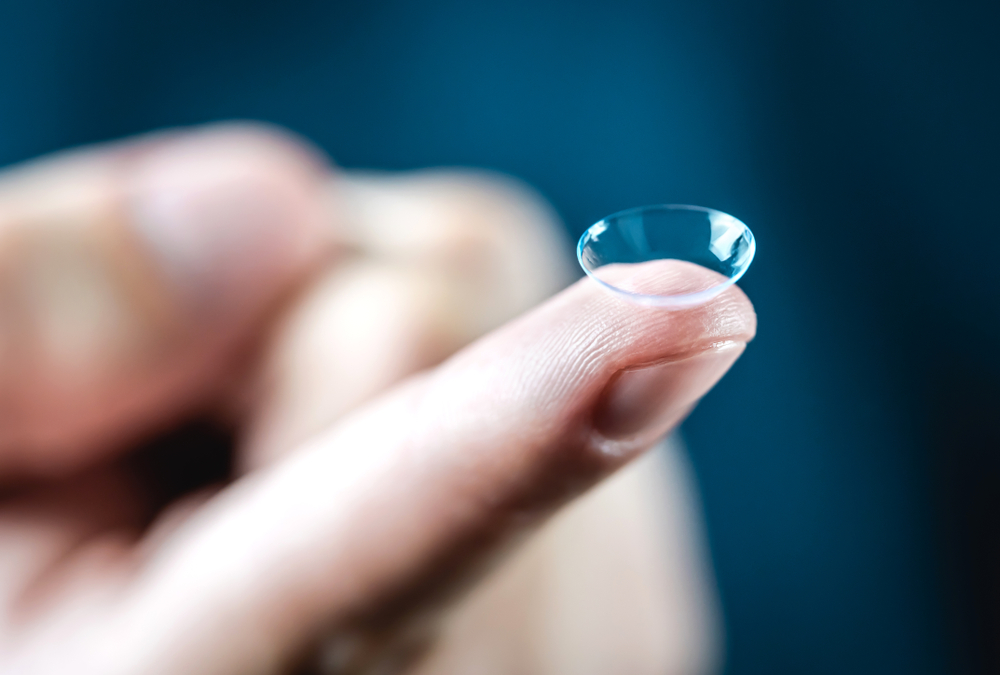Blue light is a color that is visible to the human eye as it is on the visible light spectrum. It has one of the shortest wavelengths which means it produces high energy. Blue light has both health benefits and drawbacks.
Blue light is everywhere. A natural source of blue light is the sun. In fact, the reason why the sky appears blue to us is because of blue light as it has shorter wavelengths on the spectrum of visible light. These blue wavelengths collide with air molecules and are more widely scattered than other lights, making us process the sky as blue.
Blue light can have some benefits on our overall health
- Research shows that blue light can improve memory and cognition. It also boosts alertness.
- Blue light is known to regulate our natural circadian rhythm, improving our sleep cycle.
- It can also elevate our mood, improving depressive symptoms.
Blue light exposure and eye health
Even though, natural occurring blue light can have some positive effects on your health, it also has detrimental effects on eye health. Digital devices such as LED, computer screens, smartphones and other such electronic devices emit a significant amount of blue light. Overexposure to this kind of light can be dangerous to your eyes.

Some common eye problems related to blue light are:
- Dry, irritated eyes: looking at computer screens or other blue light emitting devices can make your eyes dry and irritated. Dry eye is a condition that reduces tear production. It can cause blurry vision and can even lead to eye injuries. Click the button below to read more about dry eye syndrome and how to treat it.
- Digital eye strain: with more people working from home now, digital eye strain is becoming increasingly common. You may experience tired eyes and headaches frequently if you spend long periods of time working on a computer.
- Retinal phototoxicity: overexposure to blue light can lead to retinal damage. In the long run, this may cause loss of vision.
- Macular degeneration: research shows that extended exposure to blue light can cause cataracts and increase the risk of macular degeneration, a disease that affects a person’s central vision.
Sleep cycle: Even though blue light can improve your circadian rhythm, overexposure to artificial blue light can have a powerful effect on your brain therefore disrupting sleep. It supresses the production of melatonin in your body that helps you sleep. Therefore, you might feel drowsy but unable to sleep after long hours of looking at a digital screen.
How does blue light affect children?
Children tend to hold devices closer, and their larger pupils let in more of the blue light. This may put them at higher risk for developing sleep disorders, behavioural problems such as ADHD, obesity, and deterioration of their vision. Parents must set sleep routines to make sure their children are getting enough deep sleep, including the REM stage, it is particularly important for children — for proper growth and development. In other words, put the video games and devices away at least two hours before bedtime.
How to limit blue light exposure?

It is impossible to eliminate all blue light but there are some precautions you can take to protect yourself. Here are some ways you can reduce blue light exposure:
- Take regular breaks. You might have a job where you have to look at a screen for long hours. It is important to take regular breaks to rest your eyes. Try using the 20-20-20 rule. Every 20 minutes, look away from your screen and look at an object that is 20 feet away for 20 seconds. This helps your eye muscles relax.
- Adjust the brightness on your devices. This depends on how much light you have around you. It is helpful to lower the brightness settings on your device so that it does not irritate your eyes.
- Maintain a safe distance from your device. The rule of thumb is that you should be between 20 to 30 inches away from your computer screen. You should also adjust your desk and chair so that the screen is slightly below your eye level.
- Wear eyeglasses. If your wear prescription glasses, make sure to wear them when sitting in front of a computer or a digital screen for long time periods. You can also consider a computer pair of glasses with a wider field of view and a blue light filter —If you don’t require prescription glasses there is protection for you as well, there are blue blocking glasses available today. At LMC, we offer a variety of frame brands to fit your needs. Click on the button below to explore our promotions.
- Wear contact lenses. Some contact lenses such as Acuvue Oasys with Transitions can filter bright light by blocking 15% of blue light indoors and up to 55% when you’re out in the sun! Most contact lenses now also offer UV protection. Speak to our professional about your best options! Click the button below to order contact lenses today from our website.
- Use artificial tears for dry eye. Looking at a screen for a prolonged period can cause dry, irritated eyes. Your doctor or optometrist can prescribe you gels and ointments that can help alleviate dry eye symptoms. Book an appointment with our optometrist today by clicking the button below.
- Use computer screen protectors. You can use anti-glare computer screens to protect your eyes form harmful exposure to blue light.
- Avoid using devices at night. Blue light can have harmful effects on your sleep cycle. It is recommended to not use blue light emitting devices at least two hours before your bedtime.
Blue light exposure can cause several eye related problems. It is important to take precautions on your own to protect your eye health. If you are concerned about your eyes or have persisting symptoms, it is best to visit our optometrists for a comprehensive eye exam. Book your eye exam today by clicking the button below.



